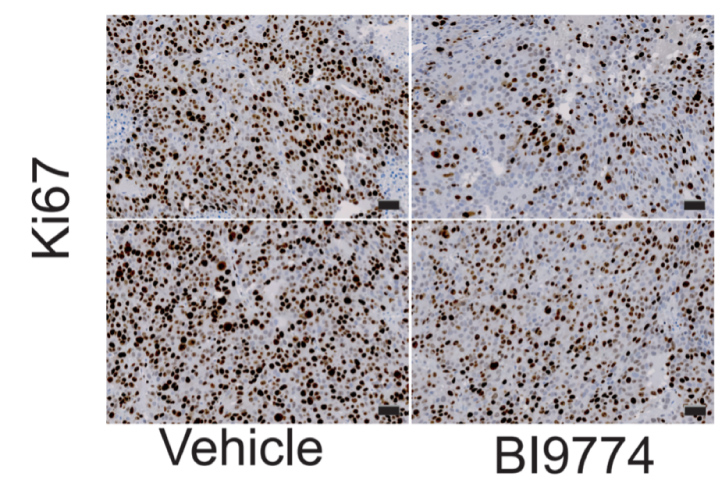
Unlocking the Potential: Exciting New Research Suggests AMPK Activators May Help Combat Prostate Cancer Progression
By LMS Staff Member
April 17, 2023
Time to read: 5 minutes
Recent advancements by the LMS Cellular Stress research team have shown remarkable progress in the fight against prostate cancer. The team has found that activating AMPK, a master regulator of metabolism, can dramatically protect against the progression of the disease.
Researchers at the LMS Cellular Stress research team have found that activating AMPK, a critical enzyme regulating cellular energy metabolism, can dramatically protect against the progression of prostate cancer. In the UK, prostate cancer affects 1 in 8 males during their lifetime and is the second leading cause of cancer-related deaths among men. Although there are treatment options available for prostate cancer that has not spread, advanced stages of the disease claim 12,000 lives annually in the UK, underscoring the unmet need for new therapies to better treat this disease. In their newest publication in Cell Reports, the LMS team found that AMPK activation suppresses the development of cancerous tumours. Activating AMPK leads to the reprogramming of prostate cancer cells and induces a catabolic cellular state that protects against prostate cancer progression.
“Metabolic dysregulation is a hallmark of prostate cancer, and these changes are required for cancer cells to grow”,
explained lead author Dr Lucy Penfold
“AMPK lies at the heart of cellular metabolism and this study demonstrates that activation of AMPK inhibits prostate cancer development and progression in vivo.”
The researchers used a clinically relevant mouse model of human prostate cancer and compared two groups: one with normal AMPK activity and the other with enhanced AMPK activity due to a point mutation in the Ampkγ1 gene. The mice with enhanced AMPK activity had significantly fewer incidences of prostate cancer than those with normal AMPK activity. Amazingly, not a single mouse on a high-fat diet and with enhanced AMPK activity developed prostate cancer. This was in comparison to the 90% of mice with normal AMPK activity.

Strikingly, researchers found AMPK activation led to ‘catabolic’ metabolic changes that contribute to the protection against prostate cancer progression. To understand the clinical potential of AMPK activators, mice with castrate-resistant prostate cancer tumours were given a potent drug that directly activates AMPK. The team found the AMPK activator successfully reduced tumour growth in the mice.

The findings of this study provide a promising future for the use of AMPK activators to slow down the progression of prostate cancer. Future investigations may reveal whether a similar relationship exists between AMPK and PGC1a in other cancers, providing critical insight into the metabolic control of cancer progression.
“Both genetic and pharmacological activation of AMPK were shown to metabolically reprogramme prostate cancer cells, inducing a catabolic state that inhibited cancer cell growth. Critically, this work shows AMPK activation to be a promising therapeutic strategy to better treat men with prostate cancer.”
– Dr Lucy Penfold, first author and former member of the MRC LMS Cellular Stress Group
Prostate cancer is a major health concern for men worldwide as it ranks as the second most common cancer in men. This new research offers hope for improved treatments and better outcomes for those affected by this disease. The study highlights the importance of understanding the metabolic processes involved in cancer progression and the potential of targeting these processes to develop effective cancer treatments.

This research was published in Cell reports by MRC Laboratory of Medical Sciences (MRC LMS) Cellular Stress Research Group in collaboration with Imperial College London and Cornell University. The research was supported by the MRC LMS Flow Cytometry Facility, MRC LMS Genomics Facility, and the MRC LMS Microscopy facility. This research was funded by Research Innovations Award from Prostate Cancer Research UK, Medical Research Council UK, UKRI Biotechnology and Biological Sciences Research Council, The Royal Society, Analytical Chemistry Trust Fund, and was supported by AstraZeneca.
Click below to find support available for individuals living with prostate cancer, as well as their caregivers and loved ones: